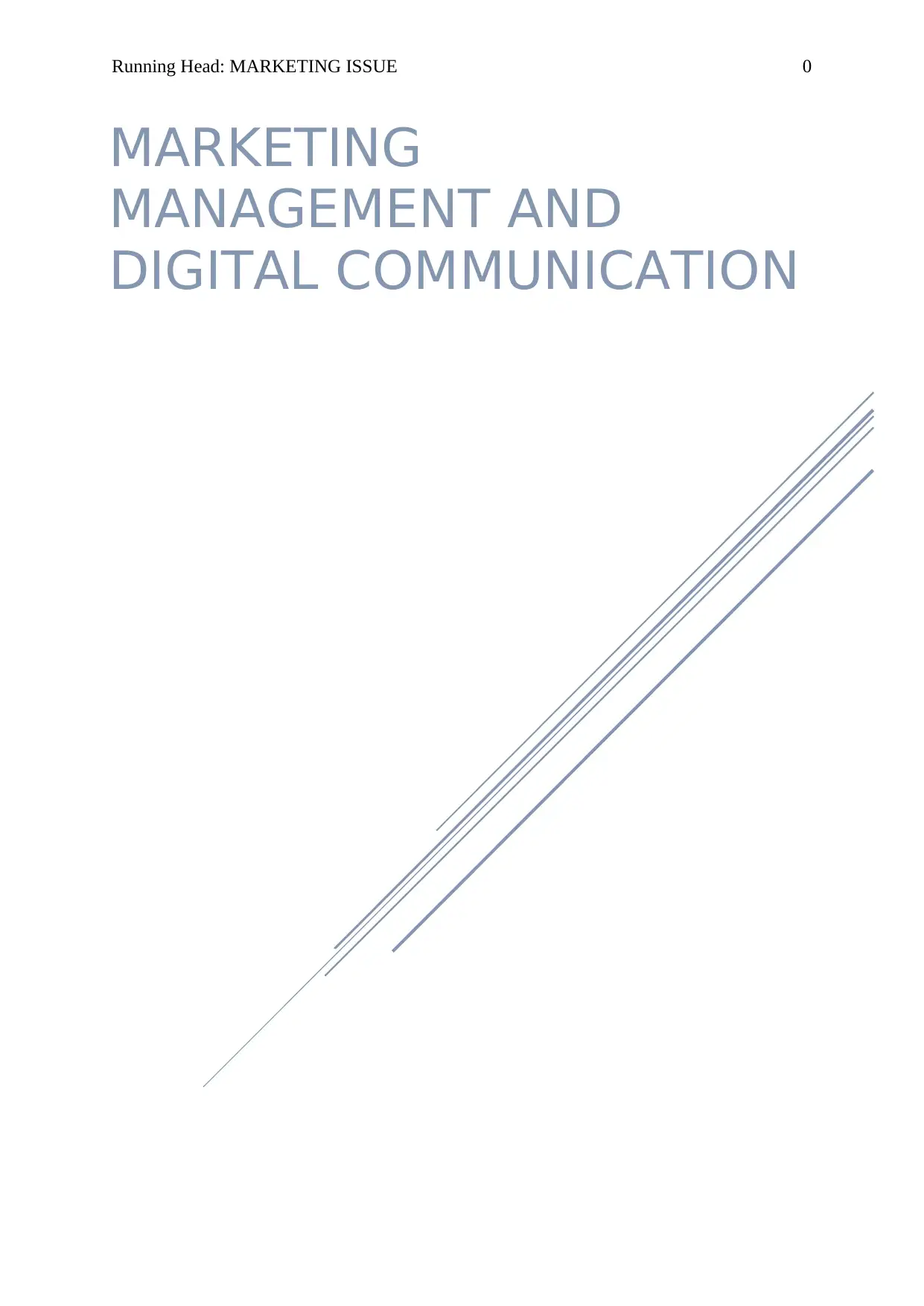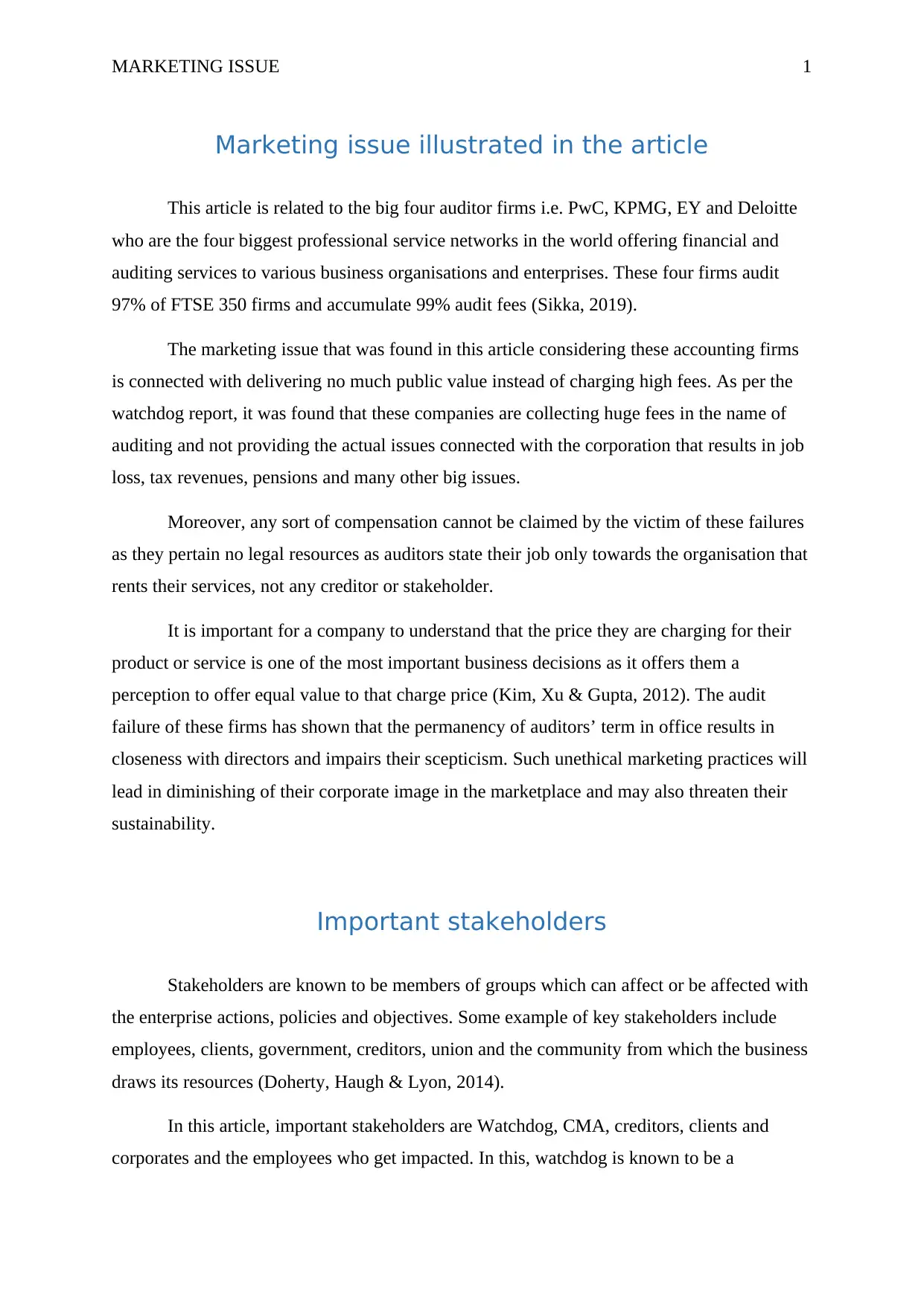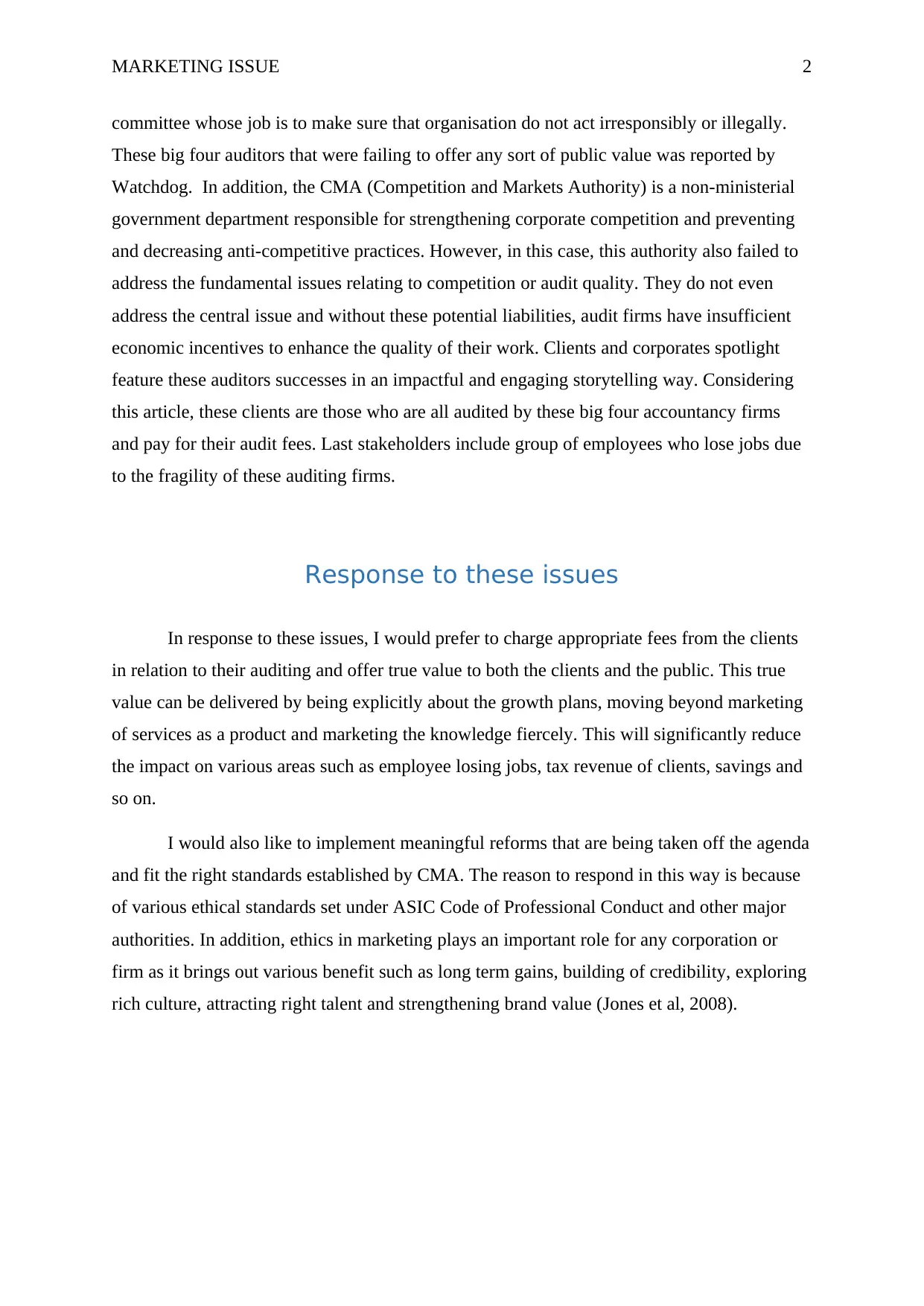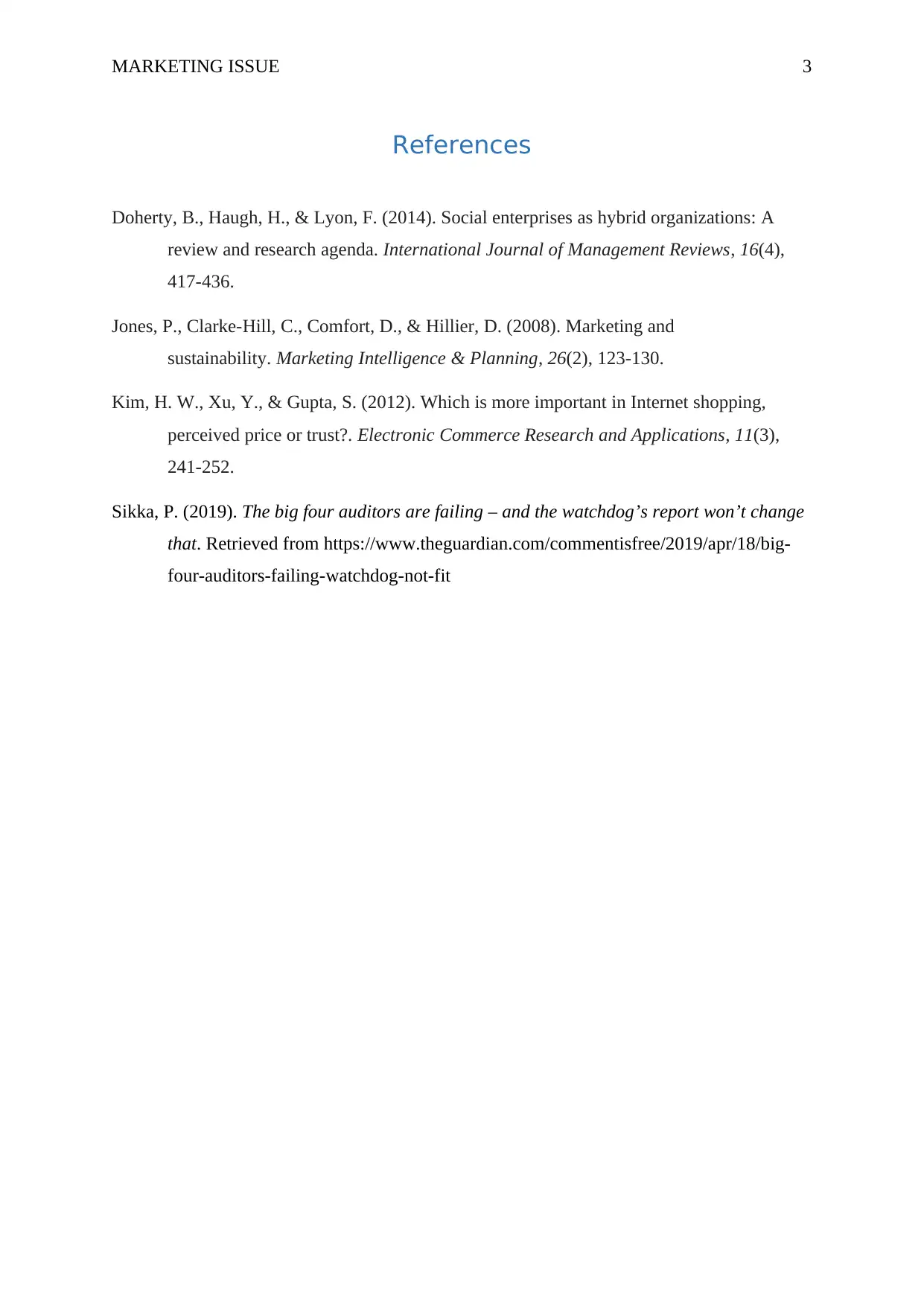Marketing Issue Report: Impact of Big Four Auditors' Practices
VerifiedAdded on 2023/01/23
|4
|912
|81
Report
AI Summary
This report examines a critical marketing issue related to the big four auditing firms: PwC, KPMG, EY, and Deloitte. The central problem revolves around these firms charging high fees while allegedly failing to provide adequate public value, as highlighted by a watchdog report. This failure leads to job losses, reduced tax revenues, and other significant consequences. The report identifies key stakeholders, including the watchdog, Competition and Markets Authority (CMA), clients, creditors, and employees affected by the audit failures. The analysis then proposes a response focusing on charging appropriate fees based on value delivered, emphasizing knowledge and growth, and implementing meaningful reforms. The response is grounded in ethical standards and the importance of ethics in marketing for building credibility and brand value. The report stresses that unethical marketing practices by these firms can diminish their corporate image and threaten their sustainability.
1 out of 4










![[object Object]](/_next/static/media/star-bottom.7253800d.svg)